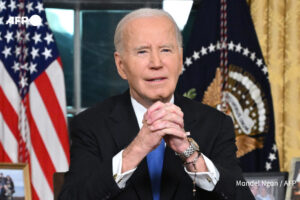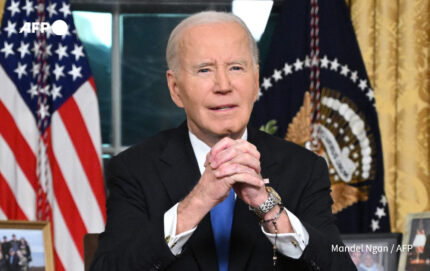Michigan Governor Gretchen Whitmer delivered a blistering attack on J.D. Vance, Donald Trump’s recently announced vice presidential candidate, during a campaign event for Vice President Kamala Harris in Pennsylvania. The Democratic governor’s remarks, which quickly went viral, highlighted the growing tension between the two major political parties as the presidential election approaches.
Whitmer’s speech, punctuated with sharp wit and pointed criticism, resonated with the audience and sparked widespread discussion on social media platforms. Her comments underscored the Democrats’ strategy of directly confronting their Republican opponents, signaling a shift towards more aggressive campaigning tactics.
Whitmer Challenges Vance’s Values and Inclusivity
In her address, Governor Whitmer didn’t mince words when discussing J.D. Vance’s political stance. She accused the Republican candidate of holding views that fundamentally oppose gender equality and inclusivity, stating, “He does not see women as equals. He does not want everyone to have a seat at the table.”
These assertions strike at the heart of ongoing debates surrounding representation and equal rights in American politics. Whitmer’s critique aligns with broader Democratic messaging that portrays the Republican Party as out of touch with the diverse needs of the American populace.
The “Cat Ladies” Controversy: Whitmer’s Clever Retort
Perhaps the most memorable moment of Whitmer’s speech came when she referenced Vance’s controversial statement about “childless cat ladies” running America. With a touch of humor, she quipped, “I mean even cat lovers and dog lovers alike!” This clever retort not only drew laughter from the audience but also highlighted the absurdity of Vance’s original comment.
By addressing this specific remark, Whitmer effectively demonstrated how seemingly offhand comments by political figures can become focal points in larger discussions about values and representation. Her ability to turn Vance’s words into a moment of levity while still delivering a serious message showcases her political acumen.
Democrats’ Shifting Campaign Strategy
Whitmer’s fiery speech is indicative of a broader shift in Democratic campaign strategy. The party appears to be adopting a more confrontational approach, directly challenging Republican rhetoric and policy positions. This change in tactics suggests that Democrats are keen to energize their base and attract undecided voters by presenting a clear contrast to their opponents.
The enthusiastic response from the audience at the Pennsylvania event suggests that this more aggressive stance is resonating with Democratic supporters. It remains to be seen how this approach will play out in the broader electoral landscape, particularly among independent voters.
The Role of Women Voters in the Upcoming Election
Governor Whitmer’s emphasis on women’s equality and representation underscores the crucial role that women voters are expected to play in the upcoming election. By framing the Republican stance as fundamentally opposed to women’s interests, Democrats are making a clear appeal to this demographic.
The governor’s assertion that Republicans are “terrified of women voting and having rights” taps into ongoing debates about reproductive rights, pay equity, and other issues that disproportionately affect women. This framing sets the stage for a campaign season where women’s issues are likely to be at the forefront of political discourse.
Call to Action: Mobilizing Voters for November
Whitmer concluded her remarks with a rallying cry, emphasizing the importance of voter turnout in the upcoming election. Her statement that “It falls to all of us to show up in November to defeat them” serves as a direct call to action for Democratic supporters and those concerned about the direction of the country under potential Republican leadership.
This emphasis on voter mobilization reflects a recognition within the Democratic Party that high turnout will be crucial to their success in November. As both parties ramp up their campaign efforts, the ability to motivate supporters to cast their ballots could prove to be the decisive factor in what promises to be a closely watched and hotly contested election.














